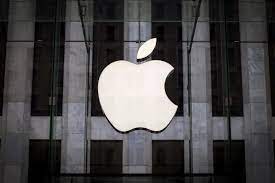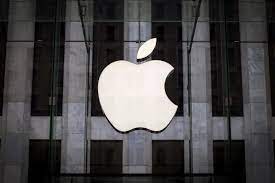
According to statistics from Counterpoint Research, Apple reported a drop in smartphone sales during China's recent Singles Day shopping event, while local rivals Huawei and Xiaomi saw sharp rises.
During the two weeks of sales from October 30 to November 12, 4% less Apple devices were sold than the previous year, according to a research consultancy released on Thursday. Comparatively, within the same time period, Xiaomi and Huawei sold 28% and 66% more units annually, respectively.
According to the report, the rises for Huawei and Xiaomi contributed to a 5% gain in Chinese smartphone sales overall during the promotion period.
Huawei's Mate 60 smartphones start at 5,499 yuan ($763), while Apple's most recent iPhone 15 model is priced at 5,999 yuan ($832). The most recent Mi 14 smartphone from Xiaomi costs 3,999 yuan ($555).
There were no comments from Huawei and Apple.
Since discontinuing the practise last year, China's e-commerce giants Alibaba and JD.com have not released sales figures for the Singles Day festival. However, JD.com reported that the value of Apple product transactions on their platform during that time exceeded 10 billion yuan ($1.39 billion).
According to a Xiaomi representative, the company's total gross merchandise value during the shopping frenzy exceeded 22.4 billion yuan.
The research group IDC stated that it anticipates sales to climb year over year in the fourth quarter after 10 straight quarters of declining shipments. Analysts have stated that the Chinese smartphone market is primed to return.
Prior to the annual shopping extravaganza, rivalry among smartphone models intensified, with major Chinese e-commerce platforms providing substantial discounts on Apple's iPhones during the period of the sales.
Approximately one month after Huawei debuted the Mate 60 smartphone range, which is powered by Huawei's in-house sophisticated technology, Apple announced the iPhone 15 series in late September.
Fans of the Mate 60 series say it demonstrates how Huawei overcame years of US export restrictions, which initially severely hurt its smartphone industry, and has garnered strong nationalistic support in China.
Xiaomi's CEO, Lei Jun, stated that the company had sold more than a million units of its flagship Mi 14 smartphone series since its launch in late October.
Analysts at Counterpoint linked Apple's poor performance to supply chain problems that have limited the availability of its new iPhone 15 models, in addition to competition from domestic competitors.
"Apple is improving compared to last month but there still seems to be hiccups in terms of supply," said Ivan Lam, senior analyst for manufacturing at Counterpoint, adding that he expects the situation to normalize soon.
(Source:www.nikkei.com)
During the two weeks of sales from October 30 to November 12, 4% less Apple devices were sold than the previous year, according to a research consultancy released on Thursday. Comparatively, within the same time period, Xiaomi and Huawei sold 28% and 66% more units annually, respectively.
According to the report, the rises for Huawei and Xiaomi contributed to a 5% gain in Chinese smartphone sales overall during the promotion period.
Huawei's Mate 60 smartphones start at 5,499 yuan ($763), while Apple's most recent iPhone 15 model is priced at 5,999 yuan ($832). The most recent Mi 14 smartphone from Xiaomi costs 3,999 yuan ($555).
There were no comments from Huawei and Apple.
Since discontinuing the practise last year, China's e-commerce giants Alibaba and JD.com have not released sales figures for the Singles Day festival. However, JD.com reported that the value of Apple product transactions on their platform during that time exceeded 10 billion yuan ($1.39 billion).
According to a Xiaomi representative, the company's total gross merchandise value during the shopping frenzy exceeded 22.4 billion yuan.
The research group IDC stated that it anticipates sales to climb year over year in the fourth quarter after 10 straight quarters of declining shipments. Analysts have stated that the Chinese smartphone market is primed to return.
Prior to the annual shopping extravaganza, rivalry among smartphone models intensified, with major Chinese e-commerce platforms providing substantial discounts on Apple's iPhones during the period of the sales.
Approximately one month after Huawei debuted the Mate 60 smartphone range, which is powered by Huawei's in-house sophisticated technology, Apple announced the iPhone 15 series in late September.
Fans of the Mate 60 series say it demonstrates how Huawei overcame years of US export restrictions, which initially severely hurt its smartphone industry, and has garnered strong nationalistic support in China.
Xiaomi's CEO, Lei Jun, stated that the company had sold more than a million units of its flagship Mi 14 smartphone series since its launch in late October.
Analysts at Counterpoint linked Apple's poor performance to supply chain problems that have limited the availability of its new iPhone 15 models, in addition to competition from domestic competitors.
"Apple is improving compared to last month but there still seems to be hiccups in terms of supply," said Ivan Lam, senior analyst for manufacturing at Counterpoint, adding that he expects the situation to normalize soon.
(Source:www.nikkei.com)














